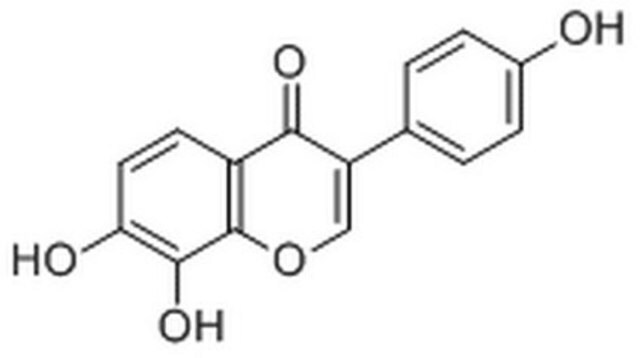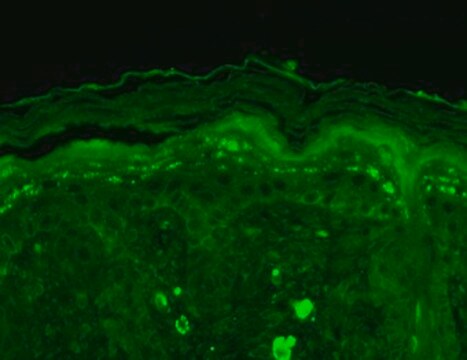SML1009
PFK15
≥98% (HPLC)
Sinônimo(s):
1-(4-Pyridinyl)-3-(2-quinolinyl)-2-propen-1-one
About This Item
Produtos recomendados
Ensaio
≥98% (HPLC)
forma
powder
cor
white to beige
solubilidade
DMSO: 10 mg/mL, clear
temperatura de armazenamento
2-8°C
InChI
1S/C17H12N2O/c20-17(14-9-11-18-12-10-14)8-7-15-6-5-13-3-1-2-4-16(13)19-15/h1-12H/b8-7+
chave InChI
UJJUKZPBUMCSJZ-BQYQJAHWSA-N
Aplicação
Ações bioquímicas/fisiológicas
Código de classe de armazenamento
11 - Combustible Solids
Classe de risco de água (WGK)
WGK 3
Ponto de fulgor (°F)
Not applicable
Ponto de fulgor (°C)
Not applicable
Certificados de análise (COA)
Busque Certificados de análise (COA) digitando o Número do Lote do produto. Os números de lote e remessa podem ser encontrados no rótulo de um produto após a palavra “Lot” ou “Batch”.
Já possui este produto?
Encontre a documentação dos produtos que você adquiriu recentemente na biblioteca de documentos.
Artigos
DISCOVER Bioactive Small Molecules for Nitric Oxide & Cell Stress Research
Nossa equipe de cientistas tem experiência em todas as áreas de pesquisa, incluindo Life Sciences, ciência de materiais, síntese química, cromatografia, química analítica e muitas outras.
Entre em contato com a assistência técnica








